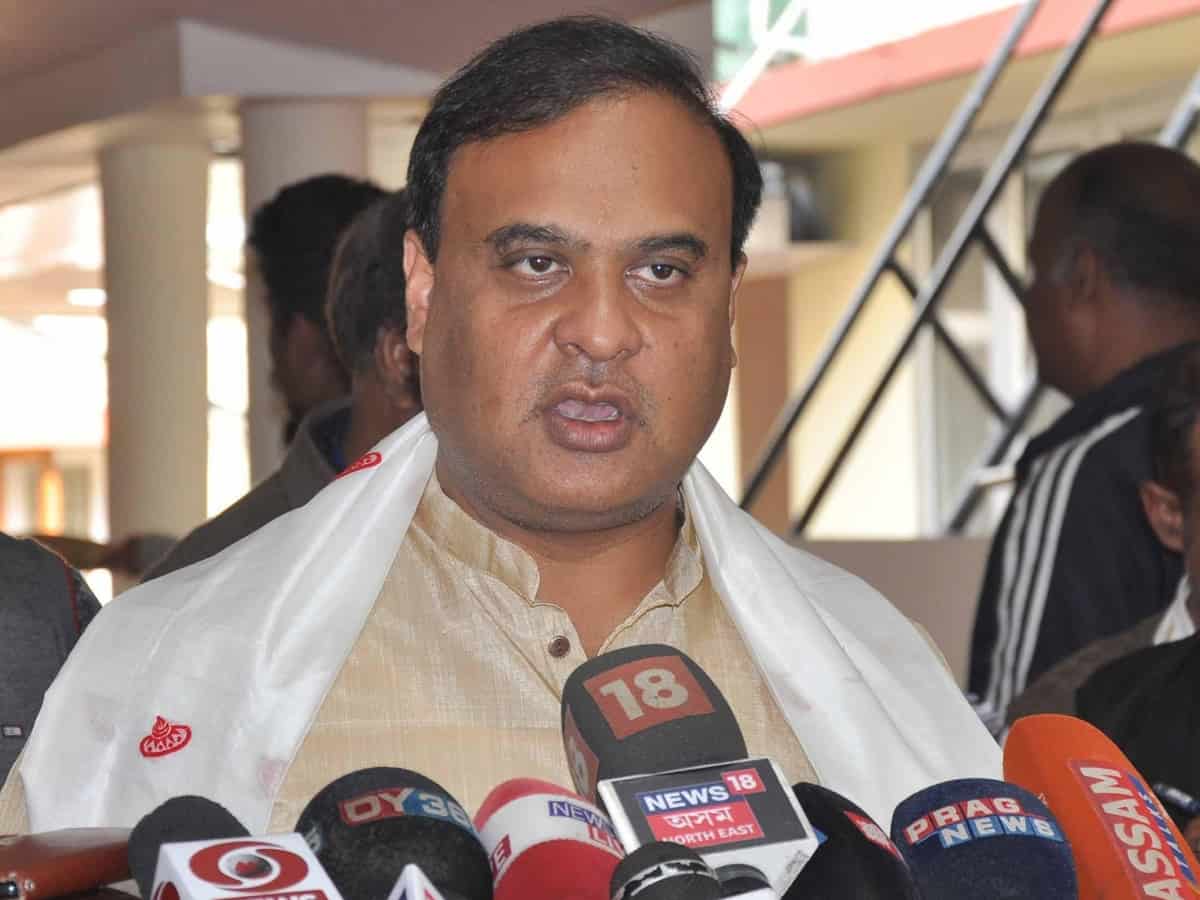
Guwahati: Assam Chief Minister Himanta Biswa Sarma has alleged that the ethnic conflicts in Manipur have “genesis in faulty politics” of previous Congress governments in the state.
He also accused the Congress of displaying “duplicity” in its interest in Manipur now vis-a-vis when its leaders “didn’t even utter a word” when the northeastern state was in turmoil under the grand old party’s regimes at the state and Centre.
“The pain arising from multi-ethnic conflicts in Manipur has its genesis in faulty policies of Congress governments during formative years of the state. Repairing fault lines created by 7 decades of misgovernance will take time,” Sarma wrote in a series of tweets on Saturday.
He claimed that since 2014, there has been “tremendous healing of Manipur’s social fabric” and the “process of resolving decades-old ethnic conflicts will be completed in totality under the leadership of Hon’ble Prime Minster Shri @narendramodi ji”.
Hitting out at the grand old party, he wrote, “Cong is suddenly displaying immense interest in Manipur. Important to rewind a bit and look at PM Manmohan Singh’s own response to similar crises in the state. The party’s duplicity is simply alarming.”
He claimed that Manipur had become the “blockade capital” during UPA’s tenure, and between 2010-2017, when Congress ruled the state, every year there were blockades ranging from 30 days a year to up to 139 days a year.
The former Congressman-turned-BJP leader said that in 2011, “one of the worst blockades” was imposed in Manipur, lasting more than 120 days.
“In 2011, the then prime minister and UPA chairperson didn’t even utter a word for those 123 days when Manipur was burning. He was busy bailing out private companies,” Sarma said.
He claimed that petrol and LPG cylinder prices went up to Rs 240 and Rs 1,900 respectively during each of these blockades, translating into a complete humanitarian crisis.
“The fact is that during 2004-2014, when Cong was ruling the nation and the state, more than 991 civilians and security personnel were killed in Manipur. Since May 2014 till date, this tragic statistic has reduced by 80 per cent,” he added.
Economic blockades were imposed by rival Kuki and Naga outfits in support of their demands, thereby crippling the landlocked state by cutting off the main supply chain.
Manipur is witnessing an ethnic conflict between Meiteis and Kukis since May 3, when violence broke out during ‘Tribal Solidarity March’ organised in the hill districts to protest against the Meitei community’s demand for Scheduled Tribe (ST) status.
More than 160 people have lost their lives, and several have been injured in the violence.
Meiteis account for about 53 per cent of Manipur’s population and live mostly in the Imphal Valley, while tribals, including Nagas and Kukis, constitute 40 per cent and reside mostly in the hill districts.



